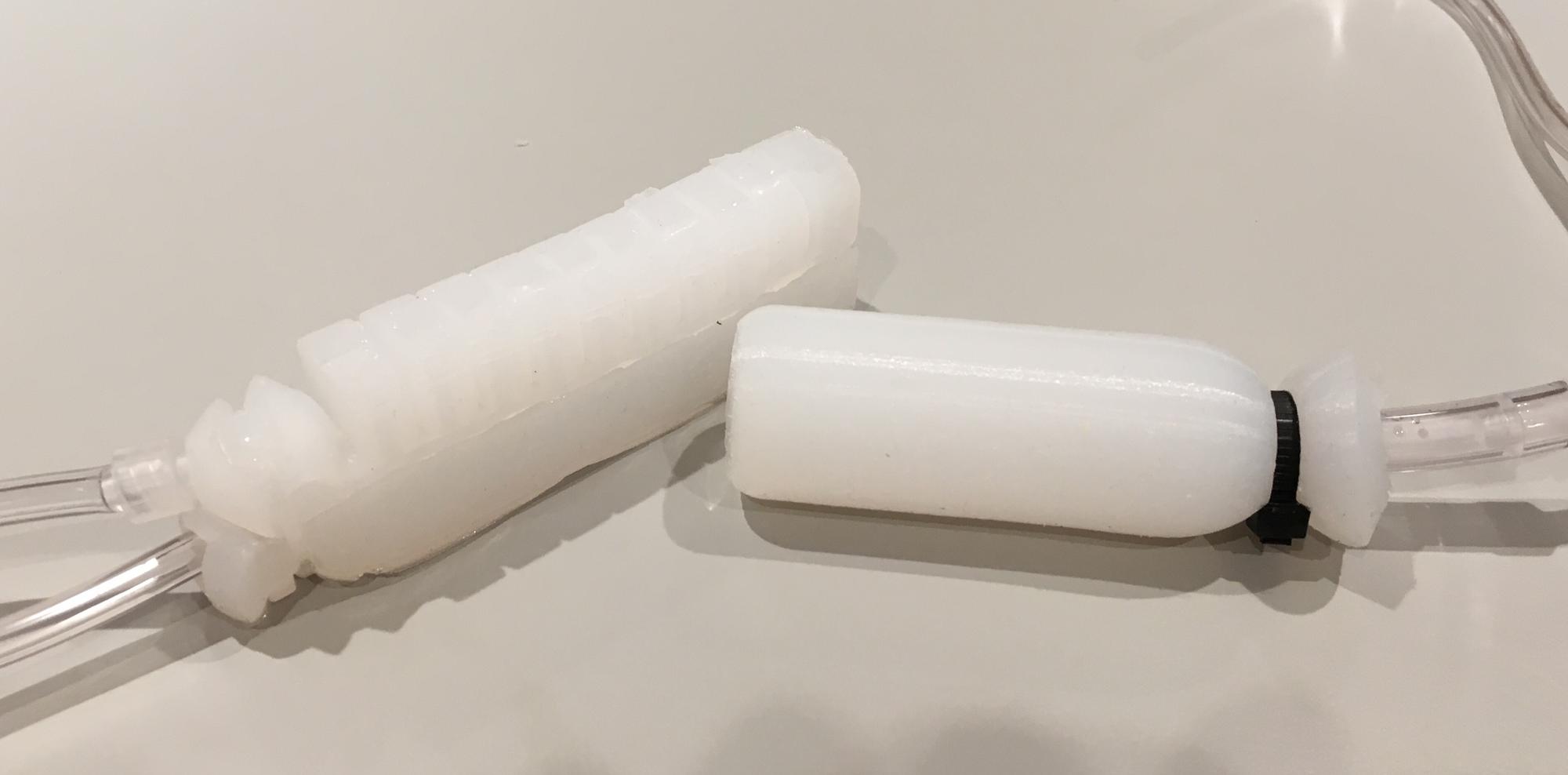Pneumatic Deformation Sensors were developed as a solution for simple sensing ability and providing precise feedback of soft robotic actuators. Many soft actuators suffer from being very inaccurate and difficult for use in precision-based tasks. Hard robotics actuators experience this to a tremendously lesser degree, as they typically have some form of sensor-based feedback. For example, servo motors are DC motors with an attached potentiometer. The feedback from this sensor allows for consistent rotation and movement with a high-degree of precision. If soft robotic actuators had similar methods of feedback, they could have much more complex motion. Unfortunately, the sensors used for feedback in hard robots (potentiometers, encoders, etc.) are hard and would compromise the "soft" qualities of a soft robot. As a result, soft sensors must be developed in order to have sensors that can provide feedback for soft robots. This is where Pneumatic Deformation Sensors come into play. PDS's can be made from soft materials, such as low-durometer silicones, air-tight fabrics, and more. PDS's are also very simple to implement in existing soft robot designs. The Design section goes into more detail about this.

